Graham Reid | | 9 min read
Keep on Knockin'
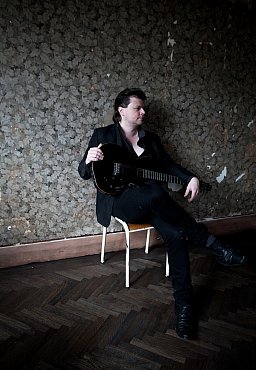
With Wood & Waste, Auckland singer/guitarist and songwriter Tom Rodwell gave us one the most interesting, engaging, witty and thoughtful albums of the year.
He is nominally a blues musician – that's his background as you will see – but the album roamed freely into the Caribbean and West Africa, pulled together the swamp sound of Tony Joe White and laidbackk JJ Cale, the songcraft of Harry Nilsson and Ry Cooder, touched numerous guitar styles and . . .
Just occupies repeat play.
Rodwell is not widely known outside of blues and musicians' circles so we thought it was time he answered a few questions.
And here he does with some very interesting answers . . .
.
Was music an important part of your childhood, and do you have early memories of music that affected you?
I was a little boy in London in the late 70’s / early 80’s so my memories are of the wide cultural liveliness of the time, and of music itself playing an outsized role in society, not just on the Beeb or Top of the Pops, but in the papers, in markets, in the park, in the playground. Music seemed to me to spontaneously arrive without artifice - it was just on the radio because it was great.
There was subversiveness and absurdism everywhere - a continuum from comic books and Saturday morning telly to John Lydon to Reginald Perrin (scored by Ronnie Hazlehurst). I loved everything about Madness (Baggy Trousers especially) and actually bought an Adam and the Ants single (plus badge) aged five.
Shakin’ Stevens and Ian Dury and Chrissie Hynde figured too, and across 1980/81 of course John Lennon and Bob Marley were inescapable.
I was aware of the landscape of the city - punks and Rastas and football nutters - and remember chancing upon the kick-off of the Brixton riots in April ’81 (Dad was a social worker and we had been intending to visit his office, before we swiftly re-tubed).
Dylan was on the turntable at home, my Mum played piano, my Dad played Lonnie Donegan on a nylon string guitar and had Buddy Holly’s autograph.
.
When did you first realise this blues thing was for you?
The mathematics of classical guitar had their appeal, but the angst of flamenco was something else. That was really the gateway drug - that there was some kind of emotional muscle within music, especially old, weird music, that was pushing and pulling at you. I got a sense that music was ‘for’ the musician in some way.
Then in Auckland on TV late on a Sunday night I saw a documentary with Big Bill Broonzy - probably a clip from “Low Light & Blue Smoke” from 1956 - and an older pal dubbed me a John Lee Hooker tape. Soon enough I was arching an eyebrow as friends played hair metal on their Walkmans - and then aged 12 I bought the Robert Johnson box set. It was the opposite of craven.
And then I found I couldn’t stop playing the guitar.
In my teens I caught Junior Wells at the Gluepot and Albert Collins at the Town Hall. He destroyed the place, stomping through the crowd with his Twin on full, despite being on the road with advanced cancer. That show was what pushed me over the edge, and not just because of the guitar playing, but because it was funky and women were dancing to it.
Rock music of the time just couldn’t seem to get it together to make that happen, but here was this sound that was groovy, witty and kind of malevolent all at once.
.
Where and when was the first time you went on stage as a paid performer?
I recall some weird party gigs, getting paid $20 and a box of beers. One was for a mechanics Friday piss-up. Then we did a warehouse party in Onehunga with bikers and strippers that was memorable for a number of reasons. I think tequila was part of the deal.
.
Was there a time when you felt it was going to be music and nothing else?
My late 20’s, after too many smokey stupid years in Auckland, I washed up back in London. It was one of those good long summers when the Oyster Card had just come in, and you could still drink cans on the street and on public transport and treat the city like a theme park.
At some point I won tickets in the free paper to King Sunny Ade at the Festival Hall. It was the weekend of Womad so the hippies were away and the audience was a couple of thousand Nigerian ex-pats. The songs were long-form, with talking drum, pedal steel, telecaster and dancers.
It went on for hours and was one of those transformative experiences, a reminder that music doesn’t need to conform to the blandness of the pop or indie charts to be viable. And the next night I caught John Zorn with a huge crowd - another adult dose. So I was skint, conflicted, but energised, and I realised that a blues-based project could be refashioned how I wanted it to be - eclectic, dance-focussed, offbeat.
I’d walked away from that genre for a long time, playing weird improv music and doing sessions - and to be honest had rarely sung in public, but it suddenly came back into my life quite intensely, vocals and all, and I started working independently, picking up gigs here and there.
This was around 2003.
.
What one piece of music would you play to a 15-year old into rock music to show them, 'This is the blues, and this is how it works'?
Jesus. There are so many obstacles today. But it was outer-space music to me, and I needed that. I was trying to figure out why the shit on the radio was so shit, and it was gratifying to find the antidote.
If you’re the kind of introspective and self-reliant person who is drawn to music in the first place, these little clues and hints of otherness are crucial. So I think rather than play a teenager any of the big obvious hits, how about something monolithic and otherworldly and funky - cue Bukka White, “Fixin’ to Die.”
The plastic facade of popular culture just drips right off. This is the raw material.
.
When you started on your music career were people around you supportive or did you have to find those people?
 A real mixture. Generally speaking people are supportive but baffled - musicians break hearts in more ways than one - and to be honest it’s only the eccentric, bloody-minded fellow travellers who can show you the practical DIY models to help you continue working.
A real mixture. Generally speaking people are supportive but baffled - musicians break hearts in more ways than one - and to be honest it’s only the eccentric, bloody-minded fellow travellers who can show you the practical DIY models to help you continue working.
Auckland jazz drummer Bruce Morley was a pal, he showed me you could be a polymath in music and make a living for a long time.
.
Ever had stage fright or just a serious failure of nerve before going on stage?
Not so much stage fright but I once got so far over the herbaceous border during a break between sets, it took me 15 minutes - on stage - to figure out why my guitar wasn’t working. It was because I hadn’t plugged it in.
Got a little round of applause for that one.
.
As a songwriter, do you carry a notebook or have a phone right there constantly to grab ideas they come? Or is your method something different?
Yeah notebooks and sometimes the phone - it has to come from the everyday, those little turns of phrase and faux pas.
.
Time travel allows you go back to experience great blues. You would go to . . ?
I suspect the correct answer for me is - today. Contrary to received wisdom, there is a black audience and club scene for blues music, it’s just called different things, and it’s up to white people to ditch the hang-ups over things like the 12-bar blues form or even the guitar as a main instrument.
There’s a whole world of stuff like what’s called Carolina Beach Music, Southern Soul or just plain old Rhythm and Blues, that to me has that blues party vibe (check out Ms Jody, Mel Waiters, Marvin Sease and of course Bobby Rush).
And then there’s gospel music - I once saw a band of mostly teens from Florida doing an insane set of Sacred Steel music. One song was slow, strange, went on for twelve minutes, and had two chords - it was hallucinatory.
It’s still out there.
.
Which period of the blues do you most relate to, and why?
Honestly I can only talk about my own quote-unquote career. I’ve been working in music since my teens, and you end up inhabiting so many roles and taking on so many projects that it can never quite be a simulacrum of another era or style or person, it becomes a thing in itself.
I can’t say I’d ever want to inhabit another kind of career, or identify with anyone in blues or blues/counterculture - there’s too much human wreckage and chaos, and there’s just so much demeaning bullshit in the music industry it’s hard to “want” anyone’s trajectory.
But I can definitely relate to those people as business people. Solomon Burke made most of his touring money from his wife’s fried chicken concession outside the venues. That’s class.
Meanwhile, it is still possible to make insanely good new blues records - Robert Cray is churning ‘em out - and I think that’s what I want to identify with, creating lasting new work.
.
What unfashionable album do you love as a guilty pleasure?
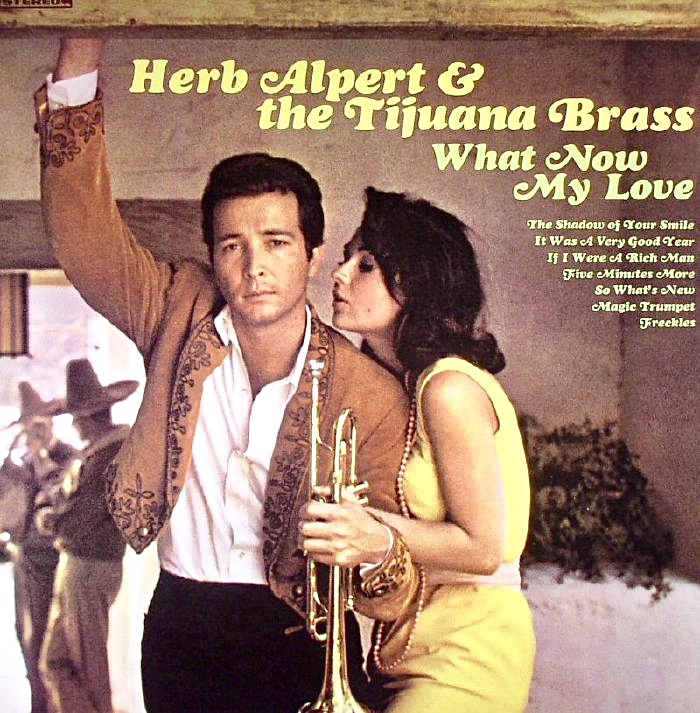 Some people would say quite a large proportion of my record collection is guilty pleasures. I’m addicted to Herb Alpert. His records sound incredible!
Some people would say quite a large proportion of my record collection is guilty pleasures. I’m addicted to Herb Alpert. His records sound incredible!
.
Any interesting, valuable or just plain strange musical memorabilia at home?
All top-secret I’m afraid.
.
The best book on the blues life you have read is . . .
Not strictly blues, but The Life and Times of Little Richard takes some beating, and Lawrence Cohn’s Nothing But the Blues helped me to get a sense of the blues record industry.
I love the political economy of the Paramount Records story for instance, the whole existence of a lot of important early blues records is thanks to a label designed so that upwardly mobile record buyers would buy a turntable and matching lounge suite from the parent company.
Similarly, a now defunct website called Junior’s Juke Joint was a great tour of the remaining small jukes in the South around the tour of the century. Sad, lovely stuff.
.
If you could get on stage with anyone it would be . . . (And you would play?)
Toss-up between Ron Sexsmith and Greg Brown. I’d play Tele or short-scale bass.
.
The last CD or vinyl album you bought was . . .
Someone’s gradually drip-feeding their old Keith Jarrett collection to Groovy, so I’m picking up some good things there, like the ABC records with the American quartet. And some of his kinky solo projects are worth it - like Hymns and Spheres (entirely on pipe organ).
(And your most recent downloads include . . .)
Sugarcane - Cat’s Eyes
The Beach Boys - Wake the World: The Friends Sessions
The Beach Boys - I Can Hear Music: The 20/20 Sessions
The Beach Boys - Feel Flows: The Sunflower & Surf's Up Sessions 1969–1971
.
The poster, album cover or piece of art could you live with on your bedroom forever would be . . .
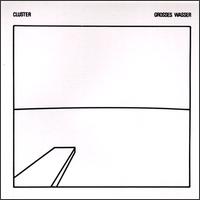 Grosses Wasser by Cluster.
Grosses Wasser by Cluster.
.
Three non-blues albums for a desert island would be . . ?
Mothers of Invention - Uncle Meat
Miles Davis - Get Up With It
The Beatles - Sgt Pepper’s Lonely Heart’s Club Band
.
Your dream band of musicians (living or dead) would be . . ?
Ginger Baker (drums)
Michael Henderson (bass)
Airto Moreira(percussion)
George Duke (keys)
.
Any piece of advice you were given which you look back on which really meant something?
I met Albert Collins’ bassist, Johnny B Gayden, who explained, “You can be a good motherfucker, or a bad motherfucker, and I am a bad motherfucker.” That’s a motivational speaker if ever I heard one.
.
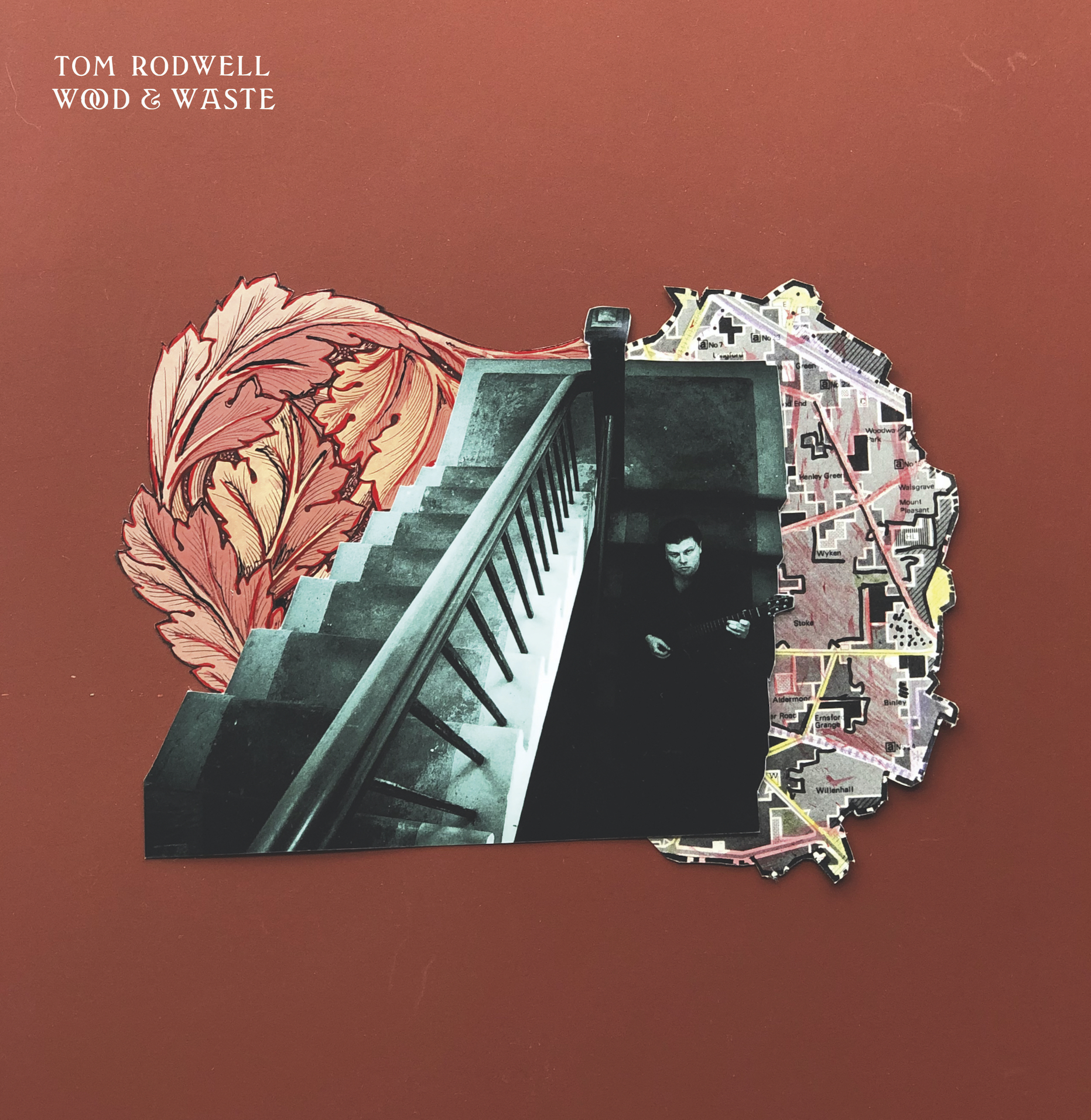 It's after a performance/concert and you are in a hotel room or back at home, what happens then?
It's after a performance/concert and you are in a hotel room or back at home, what happens then?
French red.
.
Is there a track on your most recent album you would love people to hear. And, if so, why that one?
I still can’t believe we pulled off She Got Me Boiling. No-one’s made a record quite like that before.
.
And finally, where to from here for you do you think?
Back to the studio when levels allow.
.
You can read Elsewhere's review of Wood & Waste here.
Tom Rodwell's Wood & Waste is available at bandcamp here and also on limited edition vinyl here.
Rodwell photo at the top courtesy of Liz Clarkson

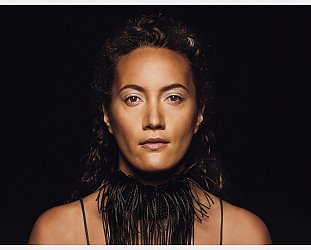
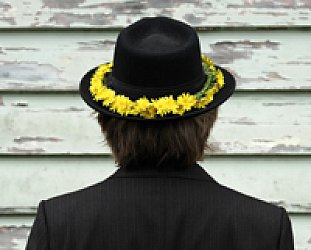
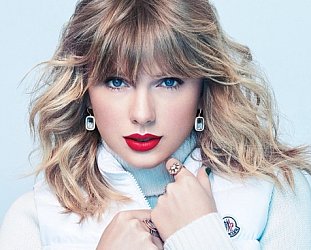
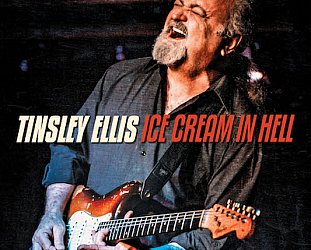
post a comment